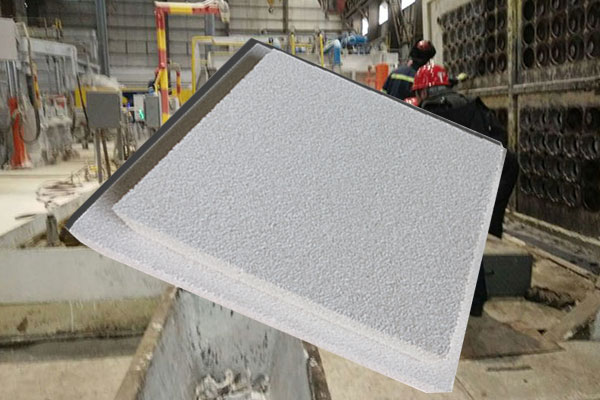Ceramic Foam Filter Jupiter Aluminium is mainly used to remove nonmetallic slag existing in the process of Molten Aluminum casting.
For example, in the melting process, aluminum is exposed to molten or semi-molten atmosphere in the furnace, easy to oxidize, easy to react with water vapor to absorb hydrogen, easy to form various forms of non-metal slag.
The second is coarse intermetallic compound particles.
The most economical and commonly used smelting method of aluminum alloy is gas furnace smelting, which requires fast melting speed, short time and less air intake.
Feeding sequence not only affects melting efficiency and alloy consumption, but also directly affects the quality of cast aluminum.
The feeding principle is first small after big, first easy to melt, after difficult to melt, first less burning, easy to burn, and finally metamorphic.
Pure aluminum ingot as raw material, according to the actual production needs to adjust the chemical composition. The advantage is that it can smelt different brands of aluminum alloy liquid, which can meet the needs of different products.
Before melting the aluminum alloy, mix the ingredients as required. Depending on the alloy grade, the composition must take into account the combustion loss of various elements in the new material, recycled material and intermediate alloy during melting.
Ceramic Foam Filter Jupiter Aluminium is basically divided into 6 pore sizes: 10PPI, 15PPI, 20PPI, 25PPI, 30PPI, and 40PPI. The larger the number, the smaller the aperture. But in actual practice, The four types of 10PPI 20PPI 30PP 40PPI molten metal filters can meet the needs of customers.

Information on Spanish Aluminium
Spain’s two biggest and most popular unions, the Workers’ Council (CCOO) of Podemos and the UGT of the Socialist Party (PSOE), have called off a four-month strike at Alcoa’s San Cibrao aluminium plant in the north-eastern Spanish region of Galicia.
At the same time, the struggle against wage cuts, unemployment and the “group immunity” policies of the ruling class is gaining momentum internationally.
The Pittsburgh-based Alcoa, the world’s third-largest aluminium producer, decided to close its smelter in Spain and lay off 530 workers, while another 1,500 indirect jobs were affected.
Alcoa announced the closure of its San Cibrao plant last May due to a nationwide lockdown and a rising death toll from the outbreak in the spring of 2020. The unions’ response was a well-rehearsed tactic of wearing down workers with isolated protests and strikes.
The unions claimed a “united front” of local and central government, unions and workers would put “pressure” on Alcoa.
At Alcoa’s San Cibrao plant, Jose Antonio Zan, CCOO union leader, called on the PSOe-Podemos government to “be brave” and “take over the plant”. Zan claimed that the government could “intervene and retain a stake in the company”.
The union pushed for negotiations between the local government and the national PSOe-Podemos government to provide new subsidies for Alcoa. The CCOO and UGT, in effect working for management, have even submitted a draft proposal to subsidise Alcoa by giving it more tax breaks.
In October, Alcoa announced massive job cuts, and amid public anger, the union called for an indefinite strike and occupation of the plant, with widespread support from workers. For four months, Alcoa has not only halted production, blocking more than 50,000 metric tons of metal shipments, but workers have also blocked any attempt by Alcoa to dismantle machinery or other manufacturing equipment.

